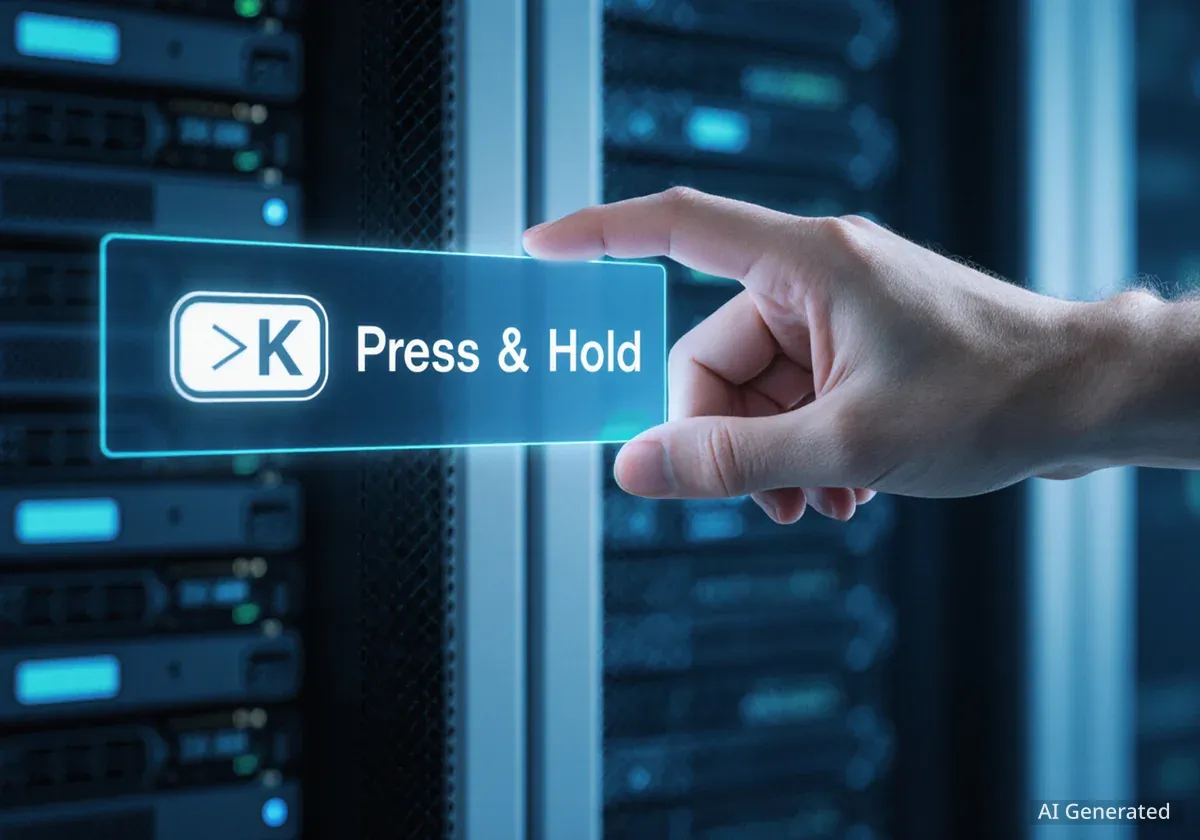The business consulting firm OP2 Collective has announced the launch of a new suite of artificial intelligence platforms. These platforms are designed to help companies develop personalized AI tools tailored to address specific challenges within their respective industries, moving away from one-size-fits-all solutions.
This initiative aims to provide businesses with the framework to build and deploy proprietary AI systems that can optimize operations, improve efficiency, and solve complex, sector-specific problems. The move positions OP2 Collective as a key player in the growing market for customized enterprise AI.
Key Takeaways
- OP2 Collective has launched new platforms enabling clients to create custom artificial intelligence tools.
- The focus is on solving unique, industry-specific problems rather than using generic AI models.
- This service is designed to help businesses integrate AI directly into their core operations for improved efficiency and innovation.
- The launch reflects a broader trend in the tech industry toward specialized AI applications for enterprise use.
A Shift Toward Specialized AI Solutions
The introduction of these platforms marks a significant development in the enterprise software market. For years, many companies have struggled to adapt general-purpose AI models to their highly specific operational needs. OP2 Collective's new offering directly addresses this gap.
By providing a foundational platform, the firm enables clients to focus on the unique data and workflows that define their business. This approach can lead to more effective and efficient AI implementations. The goal is to create tools that understand the specific language, processes, and challenges of an industry, such as manufacturing, logistics, or healthcare.
A company spokesperson noted that the initiative is about empowerment. The aim is to give clients the ability to build their own competitive advantage using AI, rather than relying on off-the-shelf products that are also available to their competitors.
The Role of Customization in Business AI
Customization is becoming a critical factor for successful AI integration. Generic AI can handle common tasks like customer service chats or data summarization, but it often falls short when faced with specialized industry requirements.
For example, an AI for a legal firm needs to understand complex legal terminology and precedents, while an AI for a construction company must analyze architectural plans and materials logistics. OP2 Collective's platforms are designed to provide the underlying structure for building such specialized "expert" systems.
Background on Enterprise AI
The market for enterprise AI is expanding rapidly. Businesses are increasingly looking to artificial intelligence to automate tasks, gain insights from data, and create new products and services. However, implementation can be complex and expensive. Companies like OP2 Collective are working to lower the barrier to entry by providing more accessible development tools and expert guidance.
How the Platforms Function
While specific technical details remain proprietary, the model involves a collaborative process. OP2 Collective works with clients to identify key problem areas that could be solved with AI. These could range from optimizing supply chains to predicting equipment maintenance needs.
Once a target issue is identified, the client uses the platform's framework to build, train, and deploy a custom AI model. This process involves using the company's own data, ensuring the final tool is highly relevant and secure. This is a significant advantage over using public AI models, which may pose data privacy risks.
"We are not just selling software; we are providing a toolkit for innovation. Our clients know their industries better than anyone. We give them the power to turn that deep knowledge into a functional, intelligent system that solves their biggest challenges."
The firm emphasizes that this approach is designed to be iterative. Clients can continuously refine and improve their AI tools as their business needs evolve and new data becomes available. This creates a sustainable model for long-term AI integration.
Focus on Measurable Outcomes
A core part of OP2 Collective's strategy is tying AI development to clear business metrics. Success is not just about launching a tool, but about achieving measurable improvements, such as a 15% reduction in operational costs or a 20% increase in production efficiency. This focus on return on investment is crucial for gaining executive buy-in for AI projects.
Industry Implications and Market Trends
The launch by OP2 Collective is part of a larger trend in the technology sector. As artificial intelligence matures, the focus is shifting from general capabilities to specialized applications that deliver tangible value in specific contexts.
This trend is driven by several factors:
- Data Availability: Companies have amassed vast amounts of industry-specific data that can be used to train powerful, custom AI models.
- Competitive Pressure: Businesses are seeking new ways to differentiate themselves, and proprietary AI tools offer a significant competitive edge.
- Technological Advancement: The underlying technology for building AI has become more accessible, allowing firms like OP2 Collective to create platforms that simplify the development process.
Analysts predict that the market for industry-specific AI platforms will grow substantially over the next five years. Companies that can provide both the technology and the consulting expertise to guide clients through the implementation process are expected to be well-positioned for success. OP2 Collective's new offering places it directly in the center of this evolving market, competing with both large tech corporations and other specialized consulting firms.
Looking Ahead for OP2 Collective
The success of these new platforms will depend on OP2 Collective's ability to demonstrate clear value to its clients. The initial focus will likely be on industries with complex operational challenges and large datasets, such as manufacturing, finance, and logistics.
The firm will also need to provide robust support and training to help clients navigate the complexities of AI development. Building a community of practice around its platforms could be a key strategy for fostering long-term adoption and innovation.
Ultimately, this move represents a strategic pivot for OP2 Collective, expanding its role from a traditional consultant to a technology enabler. By empowering clients to build their own AI solutions, the firm is betting on a future where intelligence is a core, customized component of every successful business.





